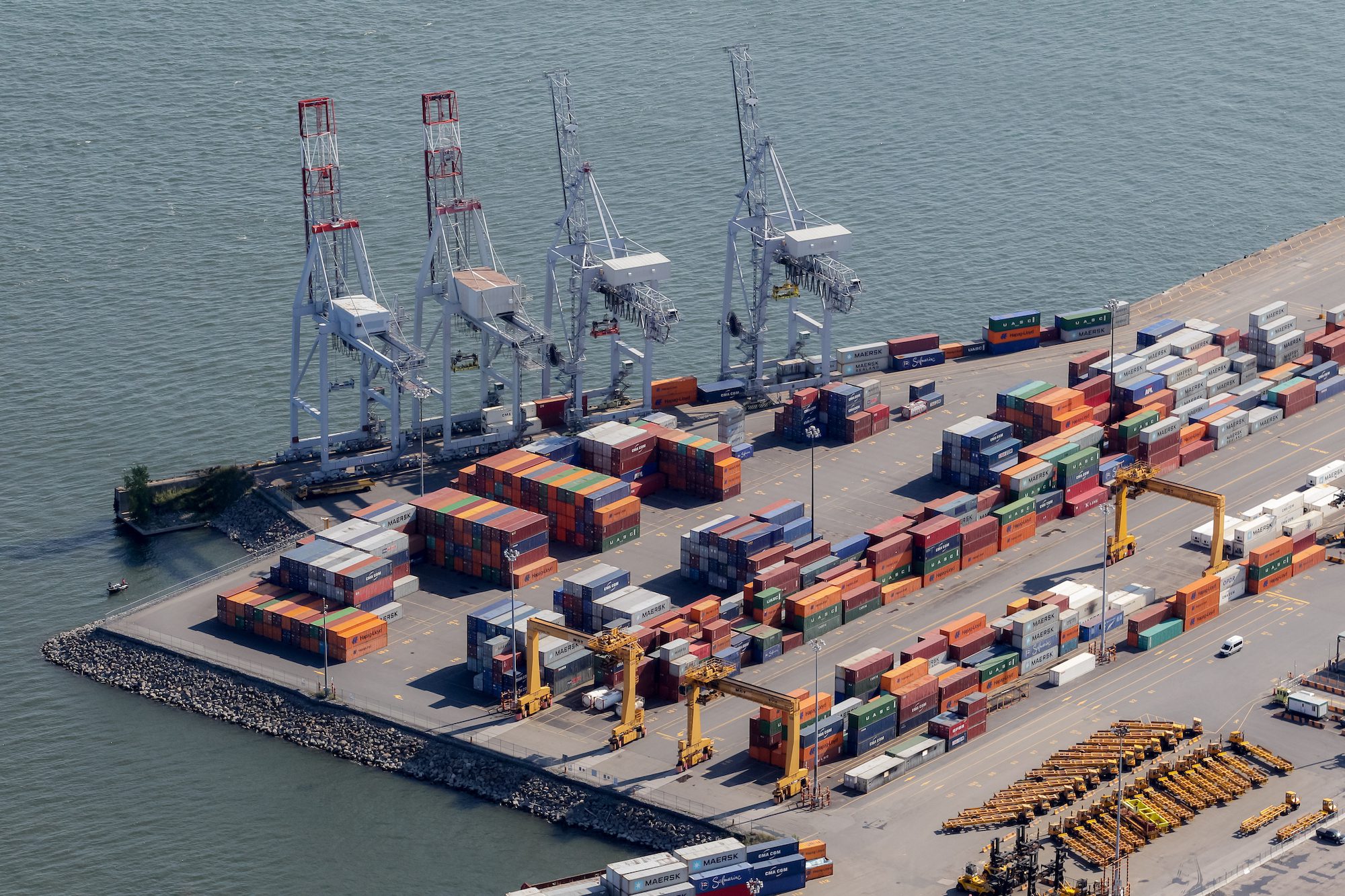Image (c) R. Almeida/gCaptain
 By John Kemp
By John Kemp
LONDON, March 3 (Reuters) – The White House could lift the ban on U.S. oil exports in stages, according to an analysis of past presidential decisions prepared for Senator Lisa Murkowski, the highest-ranking Republican on the Energy and Natural Resources Committee.
“The executive branch retains the statutory authority to authorise crude oil exports,” according to the report released in Washington on Monday (“Past is precedent: executive authority to authorise crude oil exports” March 3).
“Even statutes that generally prohibit the export of crude oil contain provisions that permit the president to authorise exports under certain conditions,” it concluded.
The full report is available on the committee’s website: Download
Easing export restrictions, rather than trying to lift the ban altogether, would have several important advantages.
The president could act alone without needing fresh legislation from a sharply divided Congress.
The White House could postpone or perhaps avoid altogether a confrontation over oil exports with its core supporters in the environmental movement.
The ban could be lifted in stages as and when the glut of particular crudes depresses their prices and threatens to limit production.
And phased permission to export would provide more time to build a domestic consensus behind exporting, and test whether exports would raise pump prices for gasoline and home heating fuel.
On six occasions since 1981, the president has lifted some of the restrictions on the export of crude oil and refined products originally imposed during the energy crisis of the 1970s.
Presidential decisions have lifted controls on the export of refined products (1981), crude to Canada (1985 and 1988), oil from Alaska’s Cook Inlet (1985), California heavy crude (1992) and Alaska North Slope oil (1996).
In five instances, the president acted alone, without Congress, utilising the discretionary authority conferred on him by the 1975 Energy Policy and Conservation Act (EPCA) and the 1979 Export Administration Act (EAA) as well as a number of other laws.
In each case, the president or the secretary of commerce determined exports were in the U.S. national interest, would not diminish the quantity of petroleum available in the United States, and were consistent with the purpose of EPCA and the EAA.
The findings of the staff report mirror my own analysis last year that the president has sufficient authority to lift or modify the ban on his own without needing fresh legislation (“Obama could lift U.S. oil export ban without Congress” Dec 19).
Murkowski, who has shown real leadership on this issue, has already stated she believes the administration “retains enough statutory authority to lift the ban on its own” in a speech she gave at the start of the year.
But if the administration was unwilling to go it alone, or concluded it needed more authority, she promised she would be prepared to introduce “small, targeted bills” to modernise the law (“A signal to the world: renovating the architecture of U.S. energy exports” Jan 7).
The real problems are political rather than legal.
The White House owes oil producers few favours after they heavily backed his challenger, Mitt Romney, in the 2012 election and campaigned against him in swing states through the “Vote 4 Energy” organisation.
By contrast, environmental groups have been among the most enthusiastic and consistent supporters of the president and many congressional Democrats, and they are mostly hostile to oil exports.
Lifting the ban with the support of congressional Republicans like Murkowski but in the teeth of opposition from his own party and environmentalists would pose risks for the president and few political benefits.
But there is a groundswell of opinion in Washington in favour of allowing at least some oil exports to sustain the shale boom and maximise the country’s geopolitical influence.
The turmoil in Ukraine, a key transit route for Russia’s gas exports, underscores the importance of exporting U.S. oil and gas to protect allies and project American influence in the world.
Lifting the ban gradually, in response to demonstrated evidence that it is hurting oil production, would enable the president to chart a middle course that minimises opposition, and is the most likely outcome in the next two years. (Editing by William Hardy and Dale Hudson)
(c) 2014 Thomson Reuters, All Rights Reserved

 Join The Club
Join The Club











